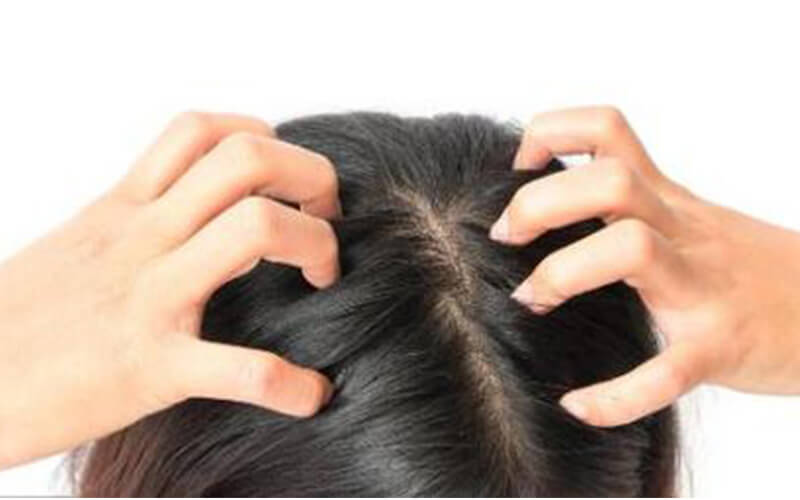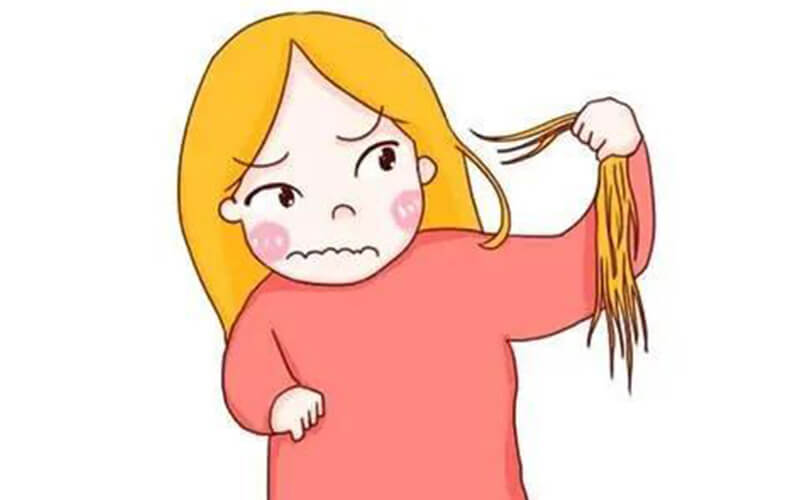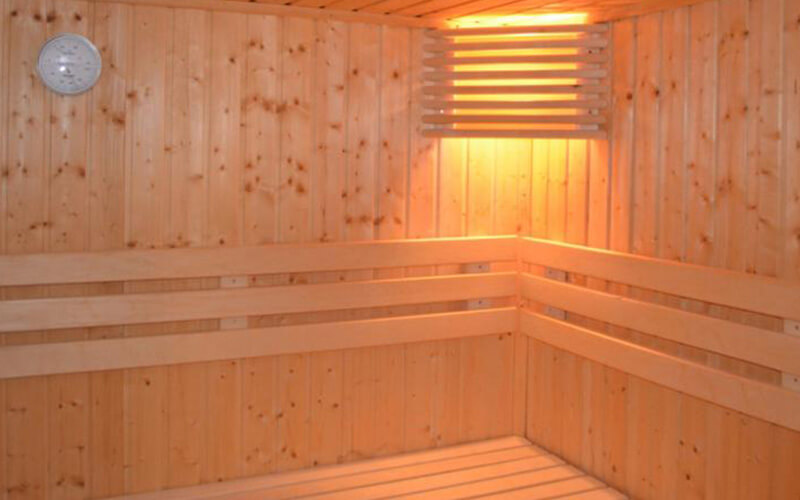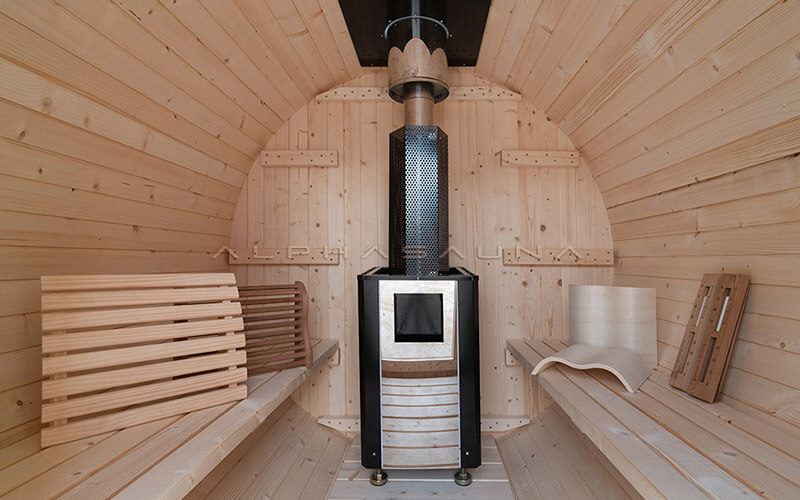Does Sauna Have Any Effect On Hair? Are The Benefits Greater Than The Disadvantages?
During a sauna session, hair is exposed to high temperatures for an extended period, which can cause irritation to
the scalp and affect the hair. Hair is not only essential for personal appearance and expression of individuality, but
it also plays a significant role in overall health. Therefore, we need to protect our hair to prevent negative impacts on our body.
Many people face various hair issues such as hair loss, dryness, oily scalp, excessive dandruff, and split ends. As a
result, people start seeking ways to alleviate these problems, such as changing shampoos, trying home remedies, or
undergoing hair treatments. However, many are unaware that saunas can also offer numerous benefits for hair and
help alleviate certain hair problems. Let’s explore the impacts saunas can have on hair.

1. Hair Loss:
Hair loss is one of the most common and troubling hair issues for contemporary people. The causes of hair loss can include genetic factors, hormonal changes, poor nutrition, stress and anxiety, scalp infections, improper washing methods, and more. We can address hair loss by maintaining a healthy diet to ensure adequate nutrition, reducing stress, keeping a cheerful mood, using gentle and non-irritating shampoos, washing hair correctly, avoiding frequent perming and dyeing to prevent scalp damage, and seeking medical treatment for genetic hair loss.
2. Dandruff:
Excessive dandruff can cause discomfort on the scalp and affect the appearance of the hair. The causes of excessive dandruff include overly dry scalp, oily scalp with excessive sebum secretion, fungal infections, and scalp infections. To address excessive dandruff, we can use anti-dandruff shampoos, regularly clean the scalp to ensure it is clean and healthy, avoid using highly irritating shampoos or hair care products, and seek help from professional hair care specialists. These solutions can help alleviate dandruff issues.
3. Dryness:
Some people have naturally dry hair, but excessive dryness can lead to dull and dry skin, adversely affecting the hair. Causes of dry hair include frequent use of heat tools such as blow dryers, straighteners, and curling irons, excessive perming and dyeing which can cause significant chemical damage to the hair, prolonged exposure to wind and sun, and nutritional deficiencies. Dry hair can be influenced by many factors, including environmental ones, so extra care is needed. Solutions for dry hair include using moisturizing and repairing hair care products, reducing the use of heat tools, avoiding frequent perming and dyeing, wearing hats or using sunscreen sprays to protect the hair from sun exposure when outdoors, and maintaining a healthy diet. These methods can help alleviate dry hair issues.
4. Oily Hair:
While some people have dry hair, others have oily hair, and both extremes are unfriendly to the scalp. Causes of oily hair can include genetic factors, excessive sebum secretion, hormonal changes, and improper washing and care methods. Solutions for oily hair include using shampoos suitable for oily hair, avoiding frequent washing, regularly deep-cleaning the scalp to remove excess oil, and seeking help from doctors or professional scalp care specialists to adopt scientific methods for resolution.
5. Split Ends:
Some hair issues include split ends and brittleness, which can be very damaging to the scalp. Causes of split ends include frequent dyeing, perming, use of heat tools, prolonged exposure to wind and sun, improper cleaning and brushing methods, and more. Hair is very fragile and easily affected by various factors. We can take measures to alleviate split ends, such as regularly trimming the hair to remove split ends, using hair care products like hair oils or masks to increase hair softness and elasticity, reducing the use of heat tools to prevent frequent exposure to high temperatures, using wide-tooth combs or massage brushes to comb the hair, and avoiding pulling the hair. Special shampoos for split ends or moisturizing shampoos can also be chosen.The above are common hair problems and their solutions. Most people experience hair issues, and various methods can help alleviate them. As saunas become increasingly popular and gain attention, the impact of saunas on hair is also being discovered. Many people are starting to try using saunas to alleviate hair problems.

What Hair Problems Can Saunas Help Relieve?
Saunas have certain benefits for hair and can indirectly alleviate some hair problems. Here are several ways in which saunas may positively impact hair:
The high-temperature environment of a sauna helps promote blood circulation, increasing the delivery of oxygen and nutrients. This can enhance the blood supply to the scalp, thereby improving the nourishment of hair follicles, promoting hair growth, helping to alleviate hair loss, and improving scalp health.
Excessive stress negatively impacts hair and is a significant cause of hair loss. Saunas help relax the body and relieve stress, which can alleviate hair loss caused by stress. Reducing stress also aids in improving overall physical and mental health, promoting healthy hair growth.
The high-temperature environment of a sauna induces significant sweating, helping to open pores and remove impurities and oil from the scalp, ensuring clean and fresh hair. Sweat may carry away impurities and oil, preventing and reducing dandruff issues, and keeping the hair clean and tidy.
The humid environment of a sauna provides a moisturizing effect for hair. For those with dry hair, the moist environment of a sauna can help keep the hair hydrated, though it should be used appropriately.
Overall, saunas can help alleviate hair problems and improve scalp conditions through these aspects. While saunas can mitigate some hair issues, the high-temperature and high-humidity environment can also change the state and quality of hair, potentially providing both benefits and drawbacks. The specific effects depend on an individual's hair type and physical condition.

What Are Saunas Bad For Your Hair?
Saunas can have some impacts on hair and may cause damage, leading to certain hair problems. The effect of a sauna on hair
depends on many factors, such as the frequency, temperature, humidity of the sauna, and the individual’s hair health. Generally
speaking, proper and moderate use of saunas will not cause significant harmful effects, but excessive use may negatively impact hair.
The high-temperature environment can strip hair of moisture, making it dry and damaging its texture. If hair is frequently permed
and dyed, combined with the high temperatures of a sauna, it is particularly susceptible to damage, becoming dry, brittle, and
prone to breakage. Prolonged and frequent exposure to the high temperatures of a sauna can damage hair follicles, increasing the risk of
hair loss. The high heat and dry environment of a sauna may also lead to a dry and itchy scalp, affecting hair quality and causing discomfort.
Saunas can indeed cause some damage to hair, so it is important to balance the benefits and potential harm. Proper and
appropriate use of saunas, along with certain measures, can help prevent scalp issues. It is recommended not to spend too
long in the sauna, ideally keeping each session to 15 to 20 minutes, and using the sauna 1 to 3 times per week. Before using
a sauna, you can apply hair oil and conditioner to your hair to ensure it has enough moisture to reduce dryness and damage.
To minimize the risk of dryness and damage from sauna use, it is best to follow the advice of professionals and use saunas correctly.
Overall, saunas do have an impact on hair. By adjusting how you use saunas, you can improve scalp health and help alleviate
hair problems. Moderate use of saunas and effective protective measures can improve hair condition and scalp health.

Do Saunas Cause Hair Loss
Saunas can have some effects on the scalp, but they do not directly cause hair loss. They may impact the scalp in ways that
indirectly lead to hair loss. Here are some considerations for individuals experiencing hair loss when using a sauna:
1. High Scalp Temperature:
The high temperatures in a sauna can cause the scalp temperature to rise. Prolonged exposure to high temperatures may lead to scalp issues such as dermatitis and dandruff. For individuals with pre-existing skin conditions, the high heat of a sauna can exacerbate these issues, indirectly affecting scalp health.
2. Dehydration:
The high-temperature environment of a sauna causes significant sweating, which can lead to fluid loss. If fluids are not replenished in time, dehydration can occur. Dehydration can also affect hair, making it dry, brittle, and prone to splitting and breaking.
3. Over-Care Of Hair:
Frequent hair care can strip the hair of its natural oils, leading to dryness and damage. This makes hair more fragile and increases the risk of hair loss. Saunas may impact the scalp in the above ways, thereby increasing the risk of hair loss. We can take measures to prevent the negative effects of saunas on hair loss. Before and after using a sauna, it is important to stay hydrated to prevent dehydration. Using moisturizing hair care products can help prevent hair from becoming dry due to the high-temperature environment. Additionally, it is crucial to control the duration and frequency of sauna sessions. Prolonged use of saunas can damage hair, and frequent use can impact the scalp. If you have severe hair loss problems, it is best to seek medical advice and address hair loss through scientific methods.
Overall, saunas can affect the scalp in ways that indirectly increase the risk of hair loss. By taking proper precautions and using
saunas appropriately, you can mitigate these effects.
The Best Sauna Benefits For Hair
There are many types of saunas, and the environment and benefits provided by different types of saunas vary. Different
temperatures and humidity levels affect the scalp differently, so choosing the right type of sauna can maximize the benefits for your scalp.
Infrared saunas typically use infrared heaters to emit radiation that directly penetrates the skin, generating heat within the
body. Since infrared saunas do not need to heat the air and instead use infrared radiation to heat the body directly, their
temperatures are relatively lower. However, the radiation can heat deeper layers of the skin, providing a deeper thermal effect.
The lower temperature results in less damage to the scalp and is less likely to irritate it, making infrared saunas suitable for
those with sensitive scalps or skin issues. Infrared radiation can penetrate deep into the skin, promoting blood circulation and
metabolism, which can help improve scalp health and potentially promote hair growth.
Traditional saunas usually generate heat from wood-burning stoves or electric heaters, with temperatures typically ranging
from 70°C to 100°C, which is relatively high. The high-temperature environment can cause hair to lose significant moisture
and natural oils, making it dry and brittle. The high temperatures can also strongly stimulate the scalp, potentially worsening
scalp issues. However, the high-temperature environment also induces substantial sweating, which helps to clean scalp pores
and remove impurities and excess oils, making the hair feel cleaner and fresher.
Different types of saunas have varying effects on the scalp, and you can choose the best one based on your needs.
Alpha Sauna is a supplier specializing in the production and sale of sauna facilities, integrating independent research, design,
and manufacturing. Our saunas are built from high-quality wood, ensuring durability and quality, and feature a traditional
and minimalist design style. If you are looking to alleviate scalp issues through sauna use, consider checking out Alphasauna’s
offerings. Our diverse range of sauna types provides a versatile selection platform for users.
By choosing the appropriate sauna, you can enjoy the benefits while minimizing potential adverse effects on your scalp.






